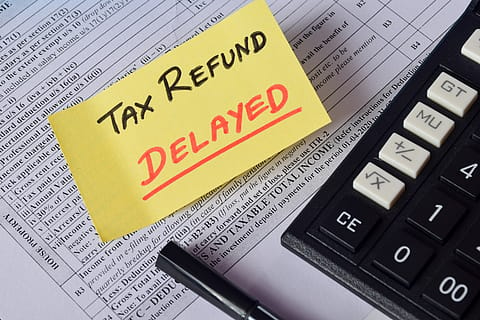How long does it take to get an ITR refund? What causes delays
There are no defined timelines under the law for the issue of income tax refunds.

For many taxpayers, filing income tax returns comes with a sudden expectation that they will soon receive a refund, but nobody is aware of when they will actually receive it. The Income Tax Department generally make refunds, if any, in a few weeks after validating the entries filled in your ITR form. However, the actual timeline varies depending on the complexity of the ITR filed.
Avnish Arora, Executive Director, Direct Tax, Forvis Mazars India, said, "The Income Tax Department has made notable strides in speeding up refund processing-many taxpayers now receive refunds within a month, and in some instances, refunds are issued just days after filing returns."
Much of this depends on whether the return was filed accurately, whether the bank was verified, and whether the entered details were correct, as well as whether the return was filed early or just before the deadline.
Additionally, Divya Baweja, Partner at Deloitte India, stated, "There are no defined timelines under the law for the issue of income tax refunds."
Now, if you are wondering about the reasons behind the delay, it could be due to a mismatch between the income reported in the return and the details available with the department, such as those from Form 26AS or the Annual Information Statement (AIS), as well as various other factors.
"Delays, however, are not uncommon and may arise due to reasons such as incorrect or unverified bank account details, mismatches in reported income versus Form 26AS/AIS, or the return being selected for additional processing or verification by the department," said Baweja.
Taxpayers also need to ensure that their bank accounts are pre-validated on the income tax portal.
Recommended Stories
"In case delays occur, remember that the law entitles taxpayers to interest on late refunds under Section 244A, providing a measure of relief in the event of prolonged waiting years or pending tax dues exist, the department may even offset these against the current year’s refund, resulting in some delays," added Arora.
Therefore, the key is accurate filing, because while the system has become faster, any error can hold up the refund. In the event of delays, as mentioned above, remember that the law provides taxpayers with interest on late refunds under Section 244A, offering a measure of relief during prolonged waiting periods.
Ultimately, one should not worry about the delays as they are not unusual. Be proactive and keep all your records and documents readily available, ensuring you provide them on time if required to facilitate the smooth processing of your ITR.